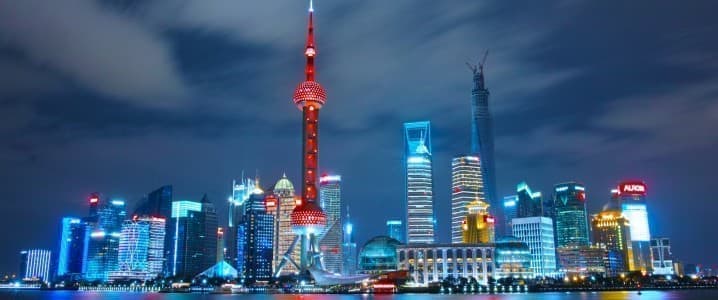- Internal disputes and rivalries, particularly involving Azerbaijan, India, and Russia, are undermining the perceived unity and potential expansion of the Shanghai Cooperation Organization.
- India reportedly blocked Azerbaijan’s full membership application to the SCO, possibly due to its rivalry with Pakistan or opposition to China’s leadership within the organization.
- Relations between Azerbaijan and Russia are severely strained, further complicating regional dynamics and the development of major trade networks like the North-South and Middle Corridors.
Chinese leader Xi Jinping has presided over a multi-day pageant in Beijing and Tianjin staged in part to showcase the strength and unity of the Shanghai Cooperation Organization, a grouping that China and Russia hope can emerge as a new geopolitical center of gravity in a shifting global order.
Azerbaijani leader Ilham Aliyev might have a thing or two to say about that.
Azerbaijan figures centrally in several simmering disputes and rivalries among SCO states that undermine Xi’s carefully cultivated image of an organization moving in lockstep to oppose a Western global agenda. The disputes have exposed significant fault lines within the organization that raise questions about the SCO’s ability to move beyond its present status as a “dialogue platform” to develop an institutional framework capable of rivaling NATO and the European Union.
Baku has been a “dialogue partner” within the SCO since 2016. But at the Tianjin summit on September 1, India reportedly blocked Azerbaijan’s application for full membership. New Delhi did not publicly explain its action.
Azerbaijani officials and experts, however, were quick to opine on New Delhi’s rejection; most believe the decision is somehow connected to India’s eternal rivalry with fellow SCO member Pakistan, with some saying Baku’s close strategic relationship with Pakistan motivated the veto. Meanwhile, Rasim Musabayov, a Baku political scientist who is also a member of the Azerbaijani parliament, suggested that India is opposed to China’s leadership of the SCO, and is thus not interested in seeing the organization expand.
Prime Minister Narendra Modi “understands that the organization is formed largely around China, not India. And China is India’s number one rival – not just a competitor, but an adversary,” Musabayov said in an interview with the state-connected Aze.media outlet. “India fully realizes that it is precisely China’s support for Pakistan that prevents India from implementing its aggressive plans against it.”
“I do not see prospects for India in the SCO,” Musabayov added.
Modi attended the SCO summit but skipped the September 3 Chinese military parade on Tiananmen Square to commemorate the 80th anniversary of Japan’s surrender in World War II.
Aliyev attended both the SCO summit and parade. On the summit sidelines, he held a bevy of meetings with other regional leaders and Chinese business executives, including Turkish President Recep Tayyip Erdogan and Armenian Prime Minister Nikol Pashinyan.
There was one notable exception to Aliyev’s meeting agenda – Russian leader Vladimir Putin.
The lack of a meeting between the two is significant, indicating that a thaw is not in the offing between Azerbaijan and Russia. Relations have been in a deep freeze since late December when the Kremlin refused to accept responsibility for the accidental shoot-down of an Azerbaijani civilian jetliner by Russian air defense forces. Mutual rancor has escalated since then, exacerbated by the deaths of two Azerbaijani nationals in Russian custody during the summer. Azerbaijani officials contend the duo was tortured.
A prolonged spat between Baku and Russia poses additional challenges for potential SCO expansion and development, given that Baku is a key cog in two major trade networks that will help shape the global order in the coming decades – the North-South route, which connects China, Pakistan, Iran and Russia, and the US/EU-backed Middle Corridor. Rejection by the SCO provides impetus for Baku to develop stronger ties with the United States and Europe under the auspices of the recent Azerbaijani-Armenian provisional peace deal brokered by US President Donald Trump.
As for the bilateral Azerbaijani-Russian relationship, it likely has not yet touched bottom.
In a late August television interview – while touting the Azerbaijani-Armenian peace deal, along with the potential benefits for the Middle Corridor – Aliyev took a swipe at the Soviet/Russian legacy in Azerbaijan, saying the country was “occupied” by Russian forces.
Since then, Russian state-controlled media has featured a steady stream of invective against Azerbaijan and Aliyev personally.
Azerbaijani government-aligned media punched back on September 2, publishing a parliamentary committee statement denouncing what it described as a Kremlin-orchestrated information campaign “aimed at inciting anti-Azerbaijan sentiment in Russian society.”
A commentary published by Caliber.az, an outlet widely viewed as reflecting Azerbaijani government thinking, indicated Baku’s patience with Russia’s “anti-Azerbaijani hysteria” is wearing thin.
“Taking into account this long-term, systemic, incurable anti-Azerbaijani campaign, it seems that the time has come for the Azerbaijani side to put an end to this vile hysteria against Azerbaijan once and for all,” the commentary stated. “We are confident that our country has very effective tools for this.”

